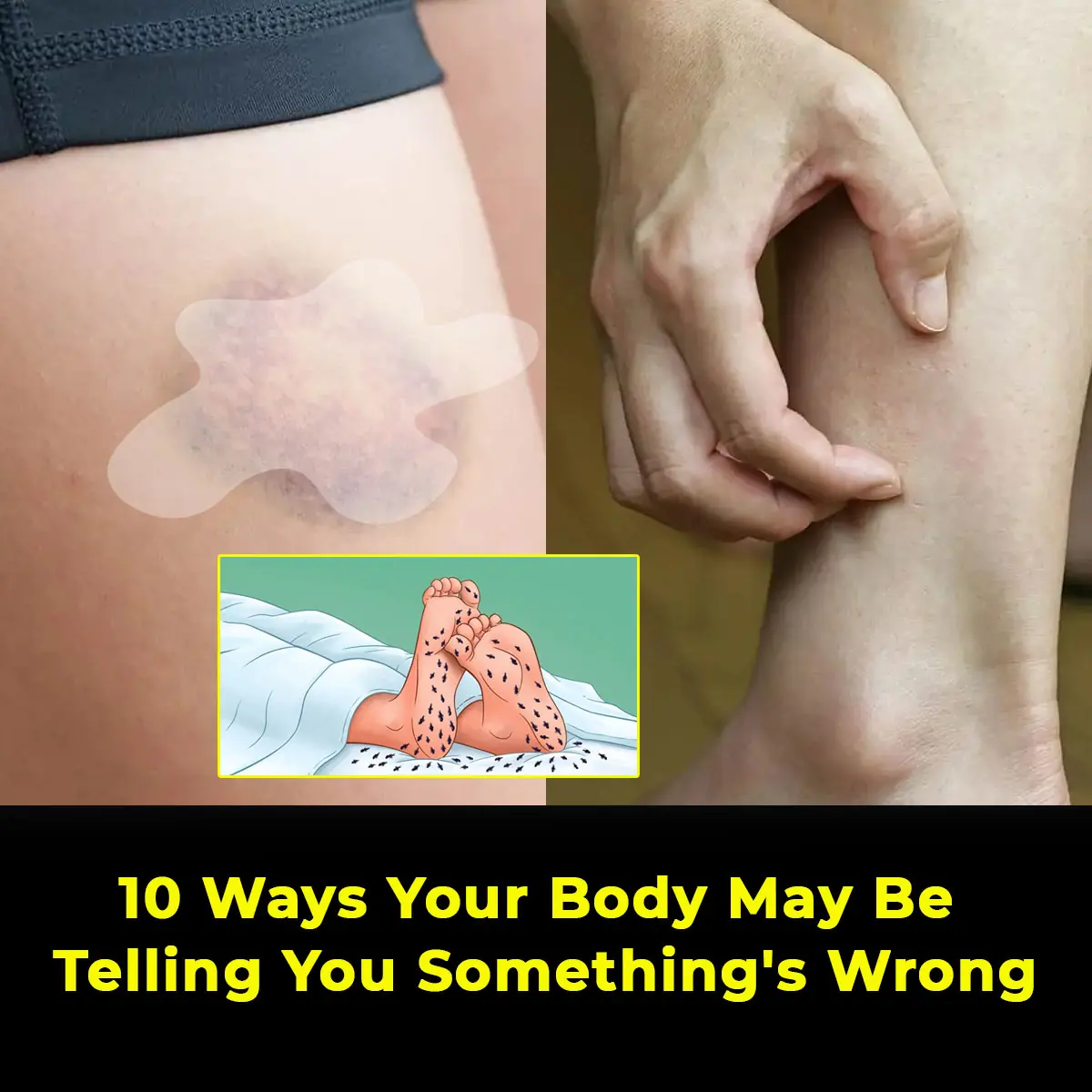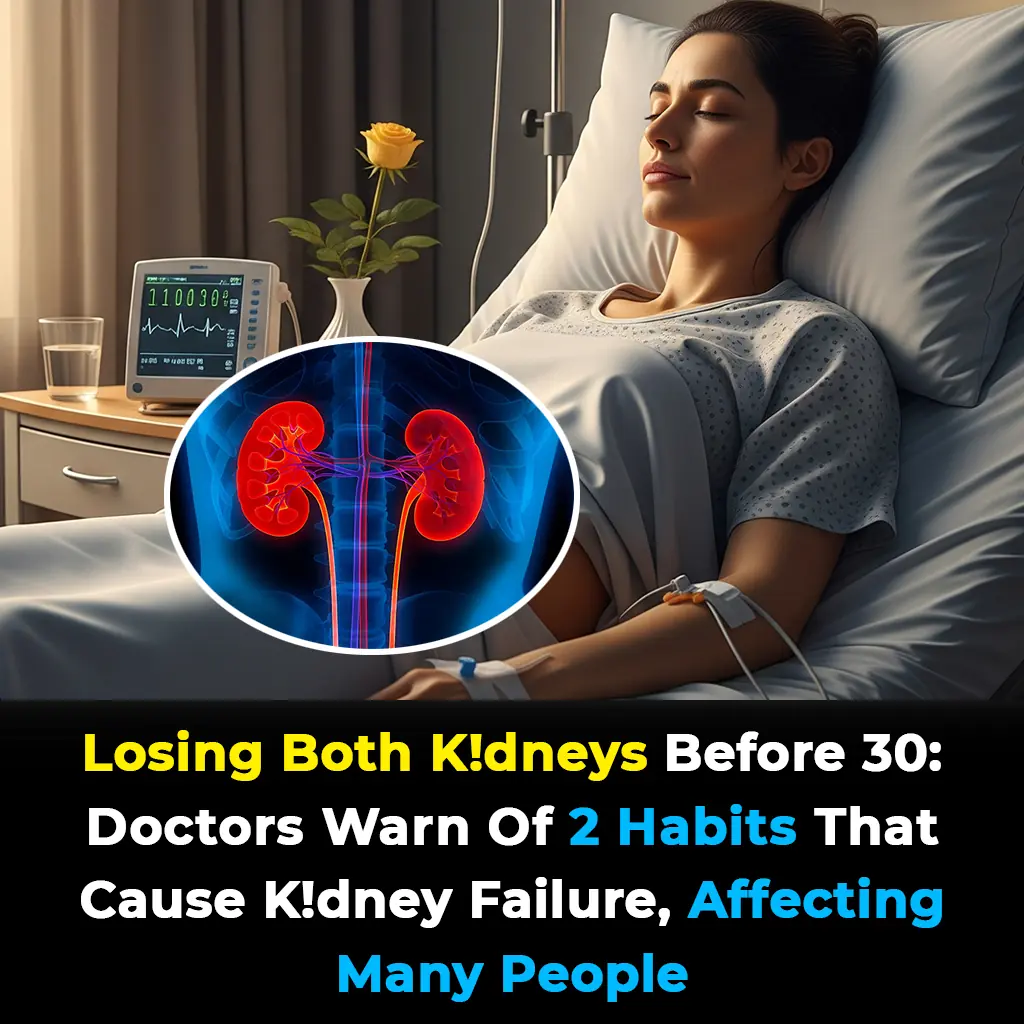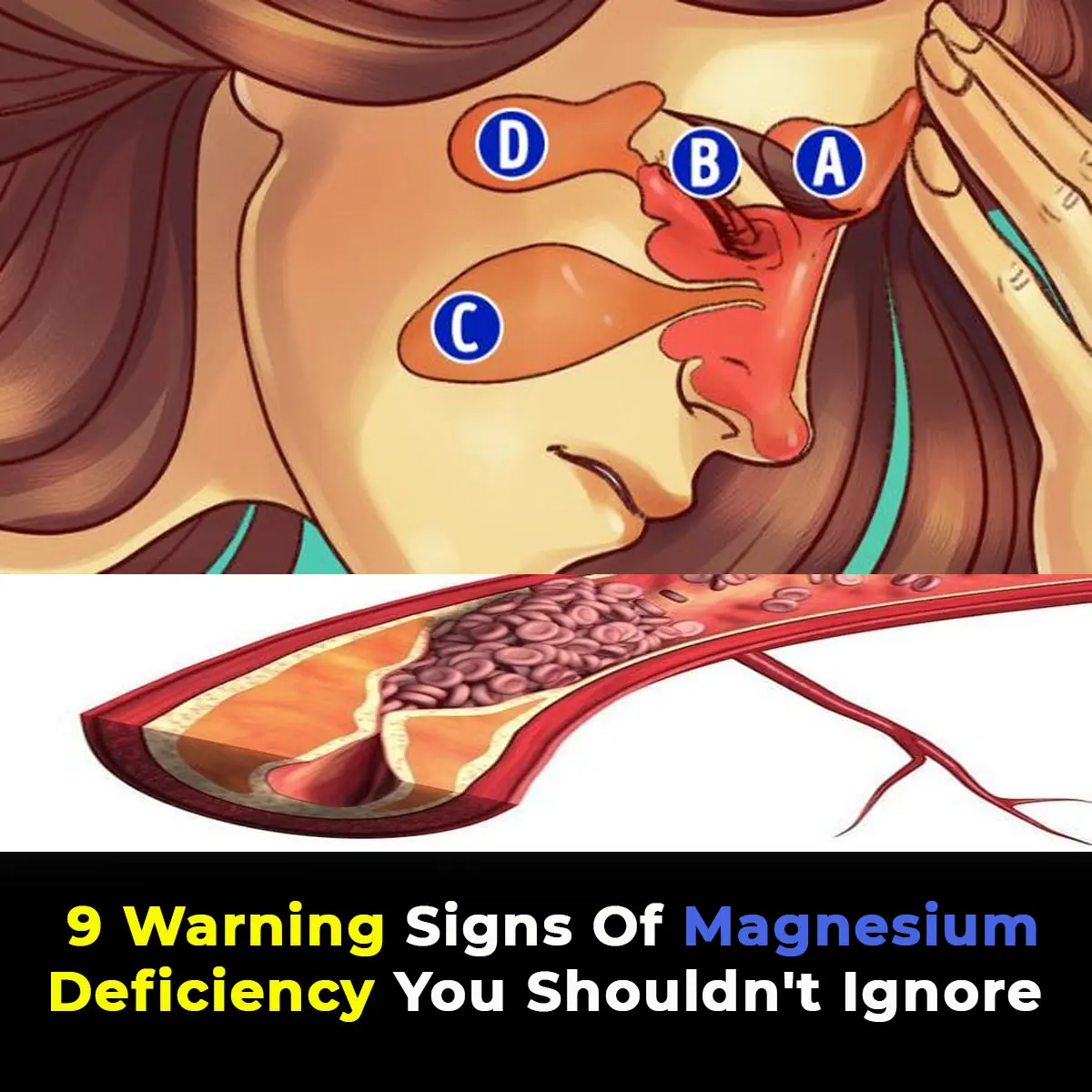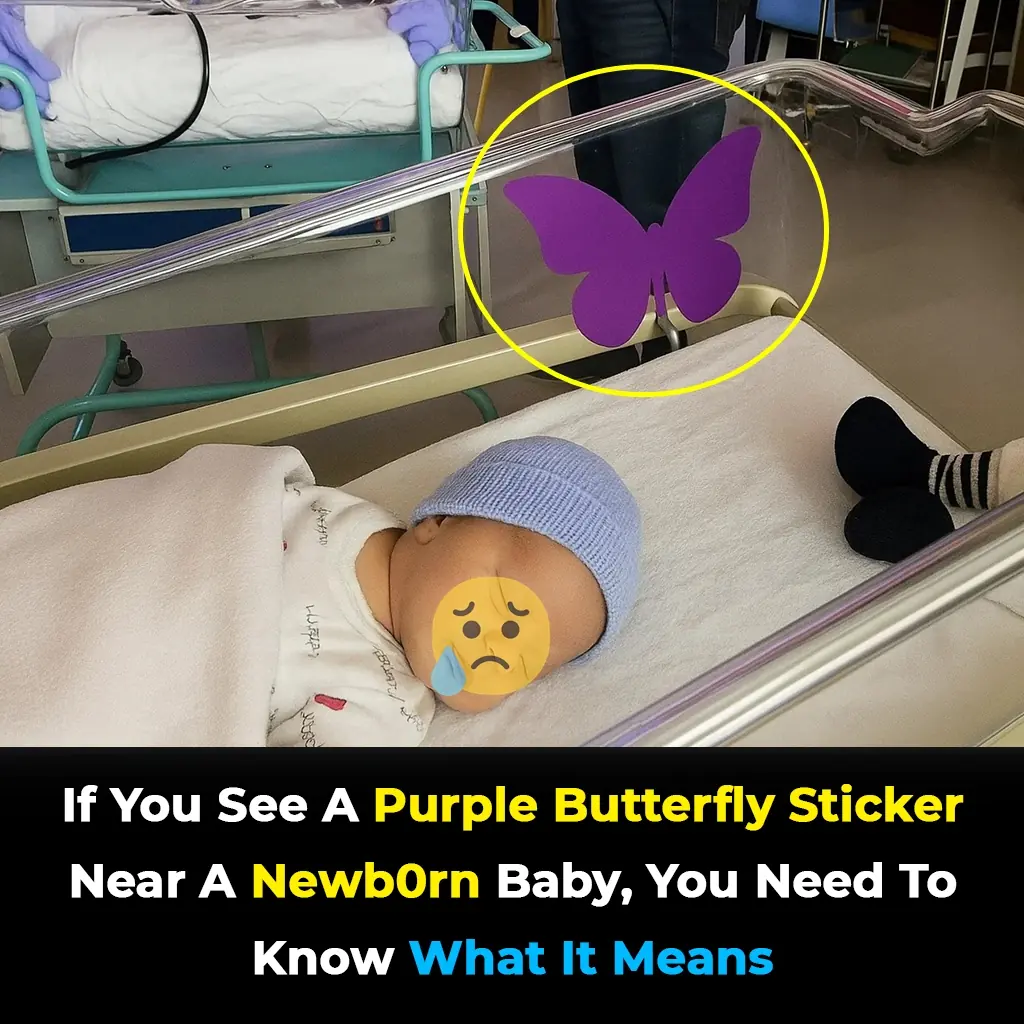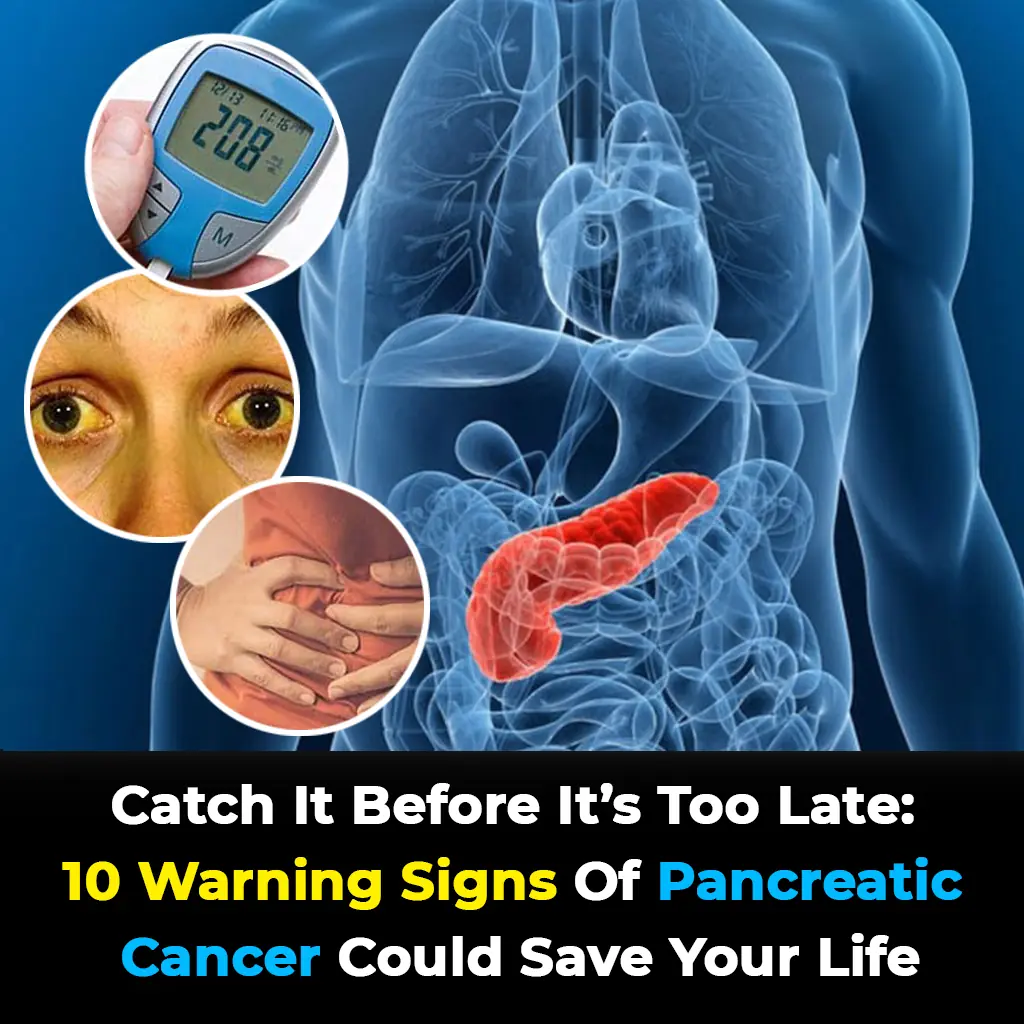Your body is constantly signaling you, and if you pay close attention, it can often alert you when something isn’t right. Some signs are obvious, like a stuffy nose when you have a cold or a fever when you're fighting an infection, but others can be more subtle, yet equally important.
Some signs of poor health might not be immediately noticeable, and they can sometimes point to chronic health conditions. While these issues might not be as dangerous as acute health problems, if ignored, they could evolve into something more serious. Therefore, it’s essential to be aware of these signs.
Though there are countless subtle ways your body may be trying to tell you something, here are ten common signs of poor health to be mindful of:
1. Crawling or Aching Sensation in Your Legs
If your legs often feel restless or you have an uncontrollable urge to move them, it could be a sign of Restless Leg Syndrome (RLS). This condition is common at night when you’re sitting or lying down. Symptoms include crawling, aching, and twitching in the legs.
RLS can affect your sleep, leading to further health issues. In some cases, medications and lifestyle changes such as warm baths, regular exercise, and reducing caffeine can help alleviate the symptoms. If these sensations are interfering with your quality of life, it’s best to consult with a doctor.
2. Skin Thickening
Skin changes, such as thickening, itching, or raised patches, could be a sign of an underlying health condition like psoriasis, hypothyroidism, or a chronic skin condition called pityriasis rubra pilaris (PRP). These conditions may require blood tests to determine the cause, so it’s important to consult a healthcare professional.
3. Changes in Your Handwriting, Sense of Smell, or Dreams
Unexplained changes in your handwriting, sense of smell, or dreams might indicate early symptoms of Parkinson’s disease. Symptoms of Parkinson’s often begin subtly, with tremors, stiffness, slowness of movement, and emotional changes. Early diagnosis can help manage the disease and slow progression, so seeing a doctor is important if you notice any of these changes.
4. Uncontrolled Anger or Aggression
While everyone experiences anger occasionally, excessive and uncontrolled anger could be a sign of depression or an underlying mental health condition. Anger and irritability are often overlooked in depression, but managing these emotions and seeking therapy could help improve overall mental health.
5. Excessive Sleep
Sleeping more than the recommended 7-9 hours a night and struggling to stay awake during the day could point to hypersomnia, a condition causing excessive daytime sleepiness. Hypersomnia may be linked to conditions like multiple sclerosis, depression, or epilepsy. If you experience these symptoms, it’s a good idea to seek medical advice to rule out any serious conditions.
6. Changes in Your Eye Color
A gray ring around the cornea may indicate a condition called arcus senilis, which is often associated with aging. However, it can also be linked to high cholesterol levels. While arcus senilis is typically harmless, it’s important to check cholesterol levels with your doctor to avoid potential complications.
7. Uncontrollable Salt Cravings
Craving salt could indicate several health conditions, including Addison’s disease, Bartter syndrome, or cystic fibrosis. If your salt cravings are excessive and unrelenting, it’s crucial to see a doctor for an evaluation, as these conditions often come with other symptoms that need attention.
8. Forgetfulness, Fatigue, and Intimacy Concerns
Feeling forgetful, unusually tired, or having a reduced desire for intimacy could signal hypothyroidism, a condition where your thyroid doesn’t produce enough hormones. Hypothyroidism can lead to weight gain, cold intolerance, and dry skin. A blood test can confirm if your thyroid is underactive, and proper treatment can help regulate hormone levels.
9. Constant Thirst
Polydipsia, or constant thirst that doesn’t go away even after drinking, could be a sign of an underlying condition such as diabetes, dehydration, or certain medications. It’s important to consult with your healthcare provider if you experience excessive thirst, as it may indicate a medical condition that requires treatment.
10. Craving Ice
Craving ice, known as pagophagia, is often associated with an iron deficiency or anemia. If you frequently feel the urge to chew ice, a simple blood test can confirm whether anemia is the cause. If diagnosed, your doctor may recommend iron supplements to address the deficiency.
Pay Attention to Your Body
Your body will often send you subtle signals when something is wrong. It’s essential not to ignore these signs, as catching a health issue early can make it easier to treat. While some of these symptoms may be minor, it’s always better to check with a healthcare provider if something feels off. Listening to your body and addressing concerns early can prevent more serious health problems in the future.
